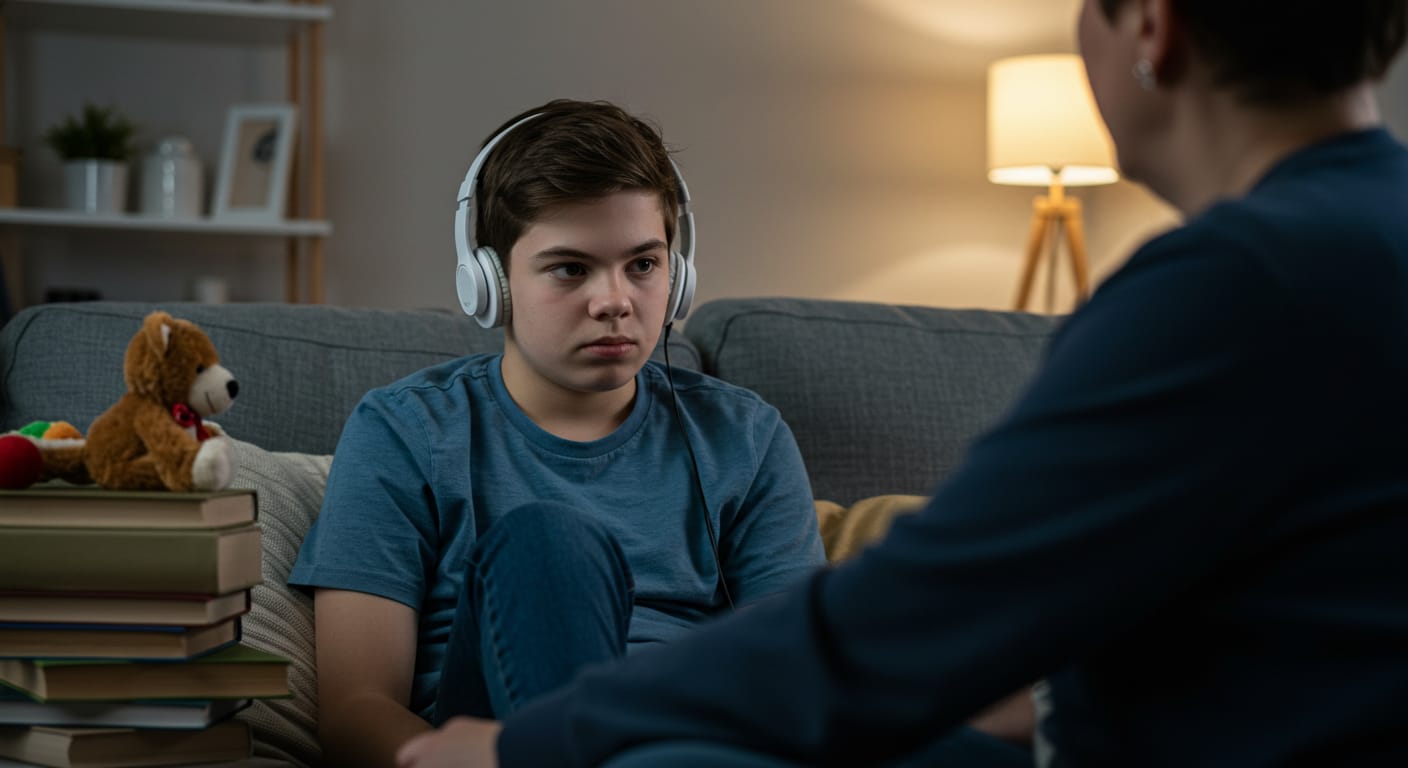Risk Factors
Autism depression can significantly impact the lives of autistic youth. This may come as no surprise, given the pressures of school, social expectations, and the challenges of navigating environments not designed with autism in mind. Without strong social skills or emotional outlets, adolescents with autism spectrum disorder (ASD) are more vulnerable to sadness, anxiety, and depression.
What Is Autism Spectrum Disorder (ASD)?
Autism, officially known as Autism Spectrum Disorder (ASD), is a developmental condition that affects communication, behavior, and social interaction. It also often includes a strong preference for routine and repetitive activities. While the severity of symptoms varies, even those with high-functioning autism (previously called Asperger’s syndrome) can face intense social and emotional pressure.
Humans are naturally social beings. When an autistic teen becomes aware that they experience and interact with the world differently from their peers, it can lead to feelings of isolation, inadequacy, or distress. This difference—though not a flaw—can become a source of emotional struggle and depression for both the individual and their loved ones.
Why Diagnosing Depression in ASD Is Challenging
Depression in people with ASD can be difficult to diagnose. Traditional signs like facial expressions, tone of voice, or typical emotional responses might not manifest clearly. Instead, caregivers and professionals should monitor changes in sleep patterns, eating habits, energy levels, or increased withdrawal from activities the person once enjoyed.
These subtle cues may be more telling indicators of depression than visible sadness or verbal complaints.
How to Support Autistic Teens with Depression
Teens with autism and depression need empathy, structure, and support. Here’s how families and caregivers can help:
💬 Emotional Support
A listening ear, patience, and calm communication go a long way. You don’t always have to solve everything—just being present and consistent can bring comfort.
🧠 Mental Health Treatment
Professional support is vital. Psychologists or therapists trained in ASD and adolescent depression can help design treatment plans, which may include therapy, medication, or behavioral strategies tailored to the individual’s needs.
🧘♂️ Coping Mechanisms
Encourage helpful routines like:
-
Listening to calming music
-
Taking a quiet nap
-
Doing light physical activity (walks, stretching, etc.)
-
Engaging in a structured hobby or interest
-
Using visual schedules to reduce anxiety
👥 Safe Social Interaction
While socializing may be difficult for some autistic teens, interacting with trusted family members or friends in low-pressure environments can ease feelings of loneliness. Even short, positive interactions can help buffer against depression.
Why Awareness Matters
By educating others—peers, teachers, extended family—on how to respectfully interact with individuals who have ASD, we can create more inclusive, supportive environments. Increased awareness reduces stigma and helps relieve some of the stress autistic teens feel when they constantly have to “mask” or adapt to fit into neurotypical expectations.
Don’t Forget the Caregiver: Take Care of You
Supporting a teenager with both ASD and depression can be emotionally taxing. As a parent or caregiver, you matter too. Your teen needs you at your best—not perfect, but rested and emotionally present.
Make time for:
-
Personal hobbies or quiet moments
-
A walk outside, a favorite book, or time with your own support system
-
Counseling or support groups for caregivers of children with special needs
Self-care isn’t selfish—it’s essential. With your emotional tank refilled, you’ll be better prepared to offer the steady presence and love your child needs to heal and thrive.
Final Thoughts
Depression is challenging. Autism is complex. But with compassion, professional support, and family understanding, autistic teens can learn to manage depression and experience joy, connection, and growth.
Together, we can fight depression—even in those who experience the world a little differently.


